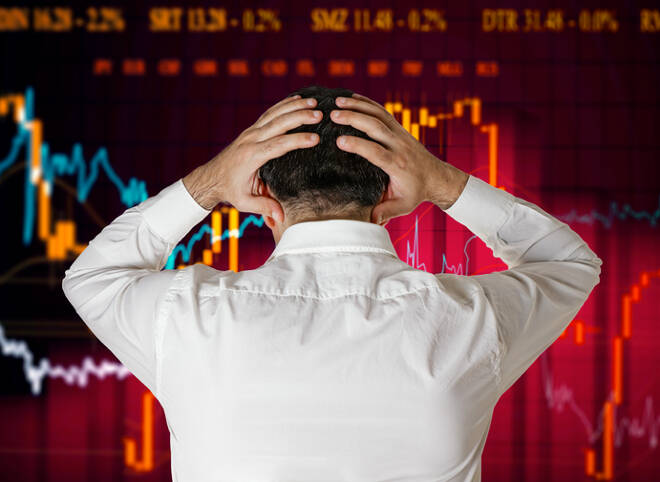Advertisement
Advertisement
Asian Markets Weaken as Chinese Military Assembles Near Hong Kong Border
By:
Although Hong Kong’s airport reopened on Tuesday after it was shut down on Monday due to protestors staging a sit-in at the airport, one economist still described the situation in Hong Kong as “very disconcerting.”
Asia Pacific shares traded sharply lower on Tuesday, led by another steep sell-off in the Hang Seng Index. The theme of the session was heightened volatility tied to rising tensions in Hong Kong amid another day of increasingly violent protests.
By the end of the trading day, CNBC was reporting that “Chinese propaganda outlets warned on Tuesday that protesters in Hong Kong are ‘asking for self-destruction,’ as they released video showing military vehicles amassing near the border of the city.”
At 08:45 GMT, Japan’s Nikkei 225 Index was trading 20455.44, down 229.38 or -1.11%. Hong Kong’s Hang Seng Index was at 25281.30, down 543.43 or -2.10% and KOSPI Index was trading 1925.83, down 16.46 or -0.85%.
China’s Shanghai Index finished at 2797.26, down 17.73 or -0.63% and Australia’s S&P/ASX 200 Index closed at 6568.50, down 21.80 or -0.33%.
Hong Kong Hotbed
All eyes are on Hong Kong on Tuesday as a military response from China to the escalating protests appears imminent.
Although Hong Kong’s airport reopened on Tuesday after it was shut down on Monday due to protestors staging a sit-in at the airport, one economist still described the situation in Hong Kong as “very disconcerting.”
Early Tuesday, Dariusz Kowalczyk, chief China economist at Credit Agricole, told CNBC’s “Street Signs” on Tuesday, “The escalation of the methodology of protestors is inviting escalation of the response by the government, so clearly the risk of a stronger clampdown is on the rise and that has market implications.”
He added: “There is still a lot that can be done in the sort of regular course of procedural actions by the Hong Kong police so we are still hoping that the situation may somehow calm down using…the regular police tactics.”
China’s Response
In a Tuesday social media post from the Global Times’ Chinese edition, the outlet said “if Hong Kong rioters cannot read the signal of having armed police gathering in Shenzhen, then they are asking for self-destruction,” according to a CNBC translation.
China is “implying they might send in the People’s Liberation Army or issue direct intervention but they don’t want to,” according to Ben Bland, a director at Sydney-based think tank Lowy Institute.
“Beijing hopes that the signals will scare protestors to back down,” but if and when Beijing decides to deploy troops they will not “advertise it,” he told CNBC.
Although China’s leaders do not want to deploy the PLA, they are “willing to do it if they have to,” the Asia politics expert said.
What It May Mean to the Markets
With the global economy weakening due to the trade war between the United States and China, the U.S. seems to be blamed for leading the world toward a recession. This is leading experts to warn the U.S. and President Trump to back down, or back away from anymore tariffs that will escalate the situation. The U.S. is being seen as the bad guy.
In my opinion, if China uses its military against the Hong Kong protestors and violence, or even death is broadcast around the world then sentiment will shift back toward the United States, which may encourage the Chinese to make a deal to end the trade war sooner than expected.
About the Author
James Hyerczykauthor
James Hyerczyk is a U.S. based seasoned technical analyst and educator with over 40 years of experience in market analysis and trading, specializing in chart patterns and price movement. He is the author of two books on technical analysis and has a background in both futures and stock markets.
Advertisement
